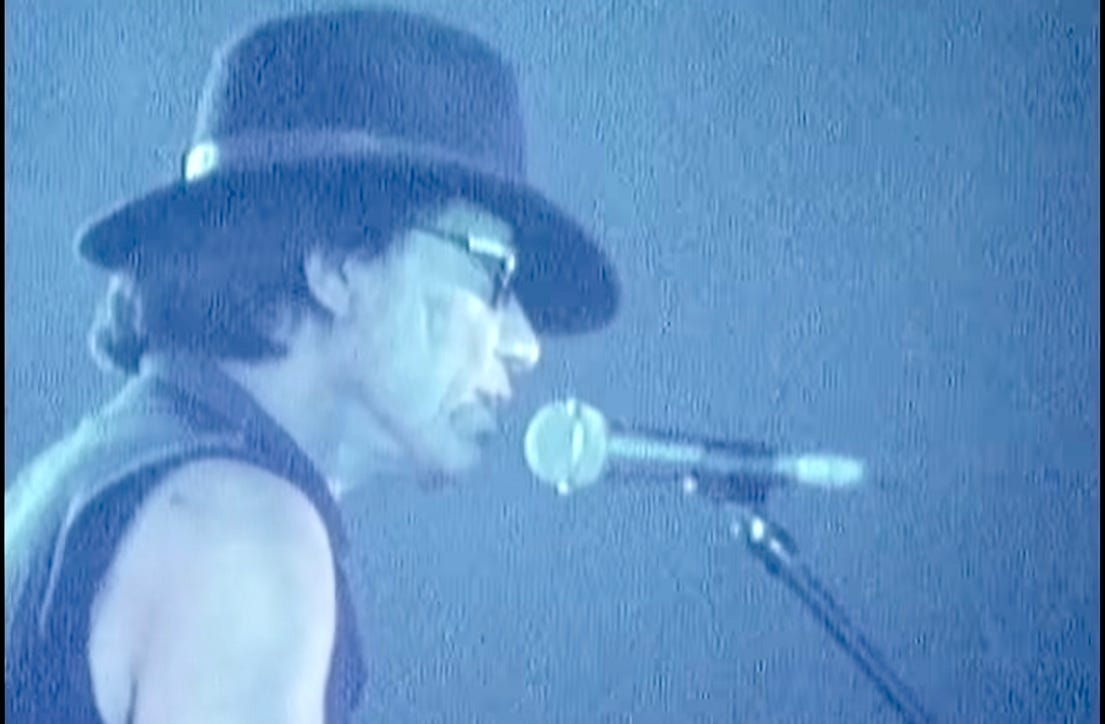If you haven’t seen the documentary “Searching for Sugar Man,” it’s almost impossible to explain the story of Sixto Rodriguez in a short-form article. It’s too strange, too unbelievable, and honestly, too infuriating.
Even the man’s name somehow symbolizes the trajectory of his life: “Sixto” is Spanish for “Sixth,” and that was the name he was given because his parents had run out of ideas after the first five kids. That anonymity, that invisibility, would persist for most of his life despite his possessing what we now know was genius-level songwriting talent.
Rodriguez released two albums, in 1970 and 1971, after years of gigging in small dives in his hometown of Detroit. The albums didn’t sell in the U.S., and that was that, or so it seemed. But, unknown to him, his records sold well in other countries, especially South Africa and Australia. They became the core of protest music in South Africa, Rhodesia, and Botswana, where he and his songs attained almost mythic status.
His popularity grew steadily until he was one of the biggest rock stars in those countries — as big as the Beatles and Led Zeppelin. The problem is, no one told him, and certainly no one paid him. Where the profits from all those record sales went has never been determined, and no one has fessed up to stealing them. His original producer was evasive when asked, but clearly took some of the spoils. It is a microcosm of how Big Music in this country treats the people who actually create all the wealth.
He was believed for many years to have died, when two South African enthusiasts (a record shop owner and a reporter) doggedly tracked him down to his home in Detroit. Finding him alive, they arranged for him to give a few concerts in South Africa. He eventually toured Australia, South Africa, and the U.K., where he was greeted with something resembling Beatlemania.
In his first appearance in South Africa, he had to wait more than ten minutes for the standing ovation to die down before he could sing. Here is an excerpt from the documentary (it’s disabled here, so just click “Watch on Youtube”):
“Searching for Sugar Man” came out in 2012. The documentary covered his career, his decades of obscurity, and his resurrection. He enjoyed a few years of fame and glory in the U.S. — and, finally, paychecks. Just as important, his genius is now widely acknowledged — he is often compared to Dylan, though his lyrics are, if anything, even more pointed. He also had a natural, easy-listening voice, with some resemblance to Willie Nelson’s. Overall, he was the complete package, and his failure to break out in the U.S. in the 1970s is truly inexplicable.
………
Sugar Man
Sugar Man is the neighborhood drug dealer. Rodriguez grew up around all the social ills that feature in good protest songs. He knew, as few artists ever have, how to capture that feeling between anger and resignation.
Crucify Your Mind
My favorite Rodriguez song. This is about as cutting as a song can be without any screaming or obscenities.




A super talent. I loved the documentary. It's the best kind of doc, where the filmmaker is discovering along with the audience. I get so bored with boilerplate biopic docs.
Absolutely adored the documentary when it was released. It was my introduction to Rodriguez who was indeed a talented songwriter who went unrecognized and unrewarded for far too long